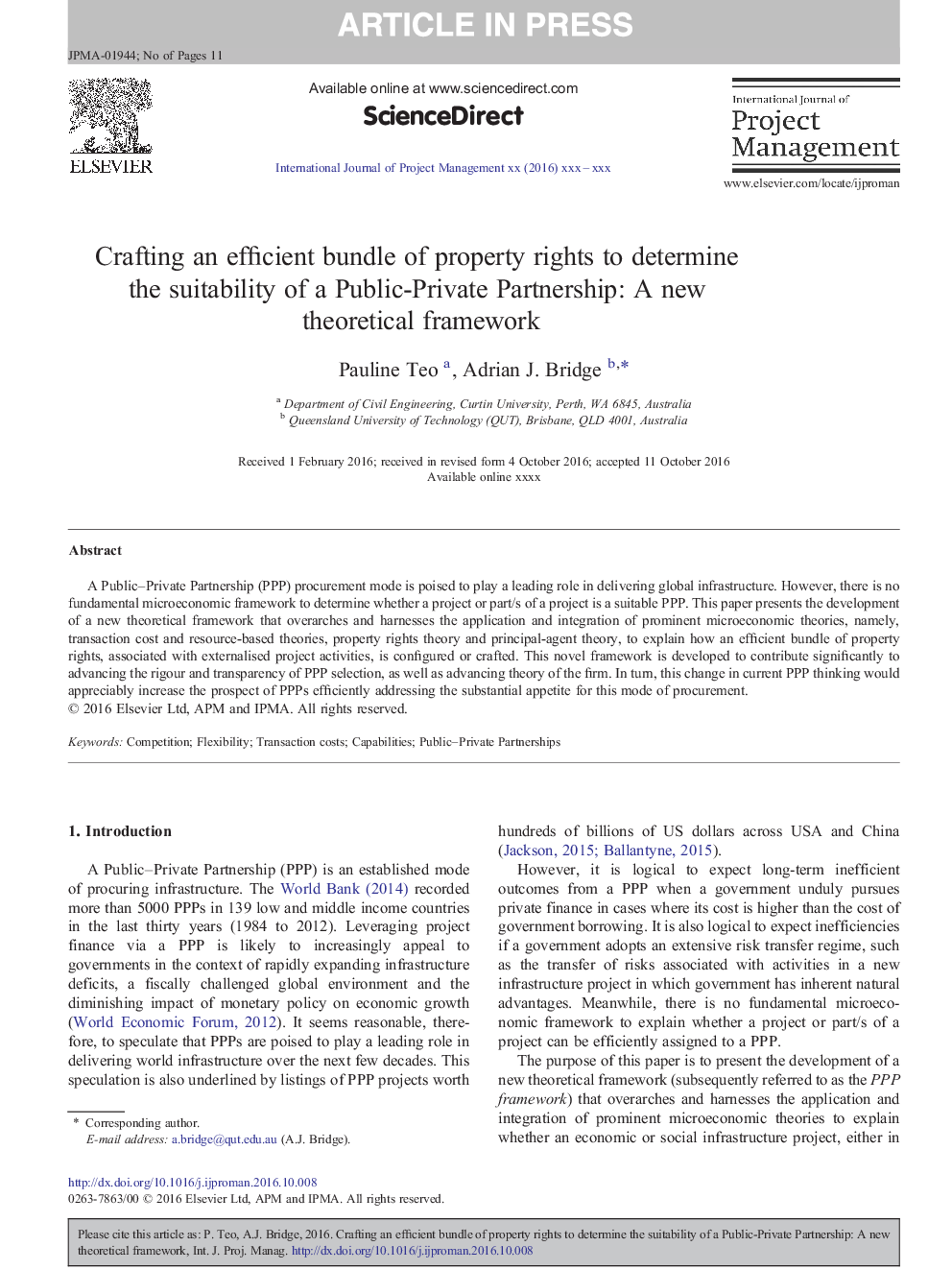| Article ID | Journal | Published Year | Pages | File Type |
|---|---|---|---|---|
| 4922180 | International Journal of Project Management | 2017 | 11 Pages |
Abstract
A Public-Private Partnership (PPP) procurement mode is poised to play a leading role in delivering global infrastructure. However, there is no fundamental microeconomic framework to determine whether a project or part/s of a project is a suitable PPP. This paper presents the development of a new theoretical framework that overarches and harnesses the application and integration of prominent microeconomic theories, namely, transaction cost and resource-based theories, property rights theory and principal-agent theory, to explain how an efficient bundle of property rights, associated with externalised project activities, is configured or crafted. This novel framework is developed to contribute significantly to advancing the rigour and transparency of PPP selection, as well as advancing theory of the firm. In turn, this change in current PPP thinking would appreciably increase the prospect of PPPs efficiently addressing the substantial appetite for this mode of procurement.
Related Topics
Physical Sciences and Engineering
Engineering
Civil and Structural Engineering
Authors
Pauline Teo, Adrian J. Bridge,
